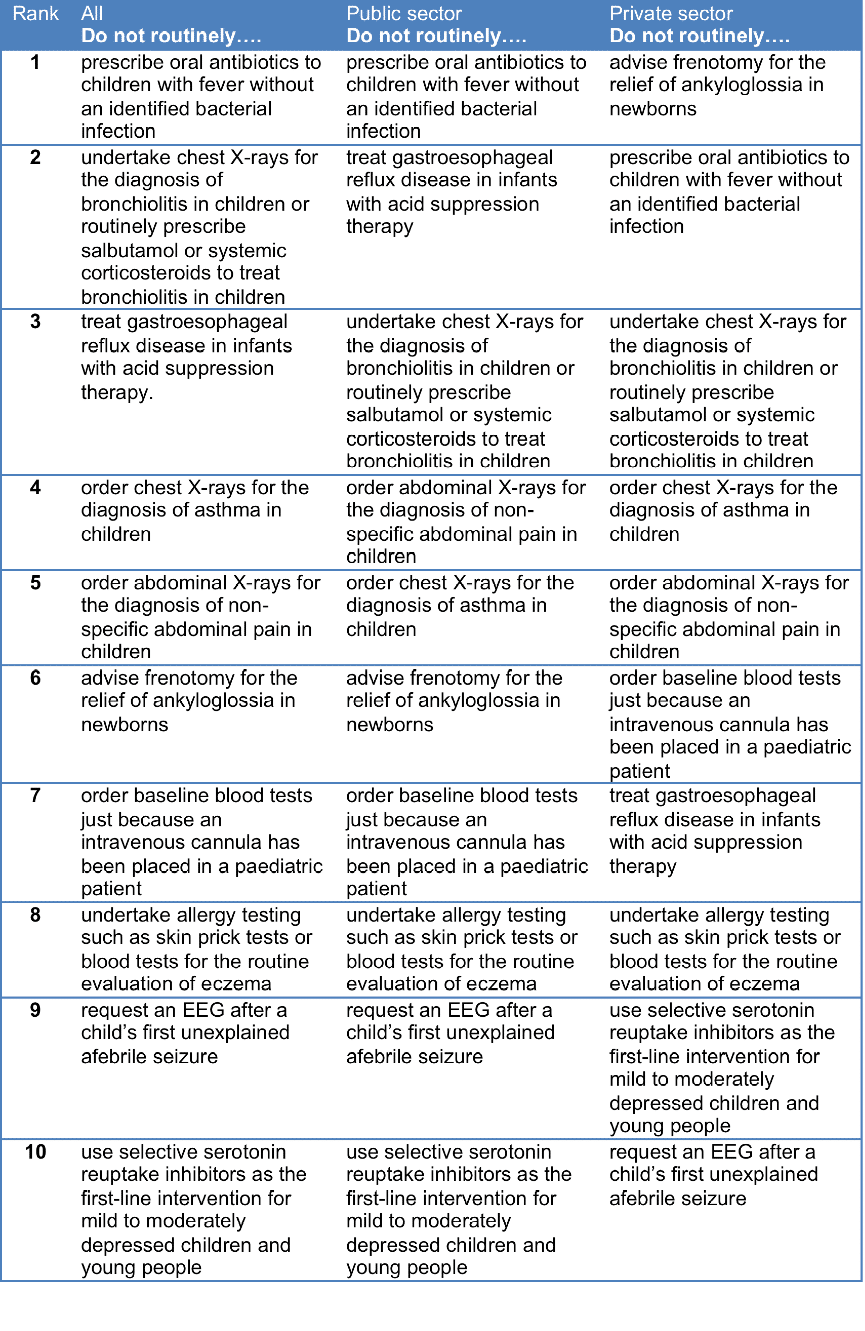
Reducing Low-value Care; Top 5 Priorities for Australasian Paediatricians
2Emergency Department, The Children's Hospital at Westmead
3Health Services Research Unit, The Royal Children’s Hospital
4Department of Paediatrics, The University of Melbourne
Background: Evolve is an initiative of the Royal Australasian College of Physicians (RACP) to identify and reduce low-value medical practices. RACP specialties participate by producing a list of their ‘top five’ low value practices to lay the ground for clinical change.
Objectives: In 2016, the RACP’s Paediatrics and Child Health Division set out to produce a top five list of low value practices for general paediatrics.
Methods: Initially a list of all paediatric-related clinical practices already identified as ‘low value’ by other specialties in Australasia and overseas was compiled. A rapid review of evidence was performed to confirm that practices were of low value, and 15 shortlisted for further consideration. Evidence summaries for each were reviewed at a workshop and participants voted on top 10 practices. Following this an email survey asked respondents to indicate for each of the 10 practices, whether: (i) the practice was commonly undertaken in paediatric patients, (ii) there was good evidence to undertake the practice less often, and (iii) reducing its use was important in reducing harm and/or costs to the healthcare system.
Results: Survey response rate was 22% (n=269). Table 1 shows the ranking from highest to lowest of practices for all respondents, ‘public sector’ and ‘private sector’ respondents. Ranking was similar across practice groupings except for frenotomy.
Conclusion: We believe the general paediatric Evolve list provides good clinician agreement as to low value practices. The challenge now is to measure in a valid and reliable way where these practices are occurring and then develop, test and translate sustainable interventions to reduce them.


Powered by Eventact EMS